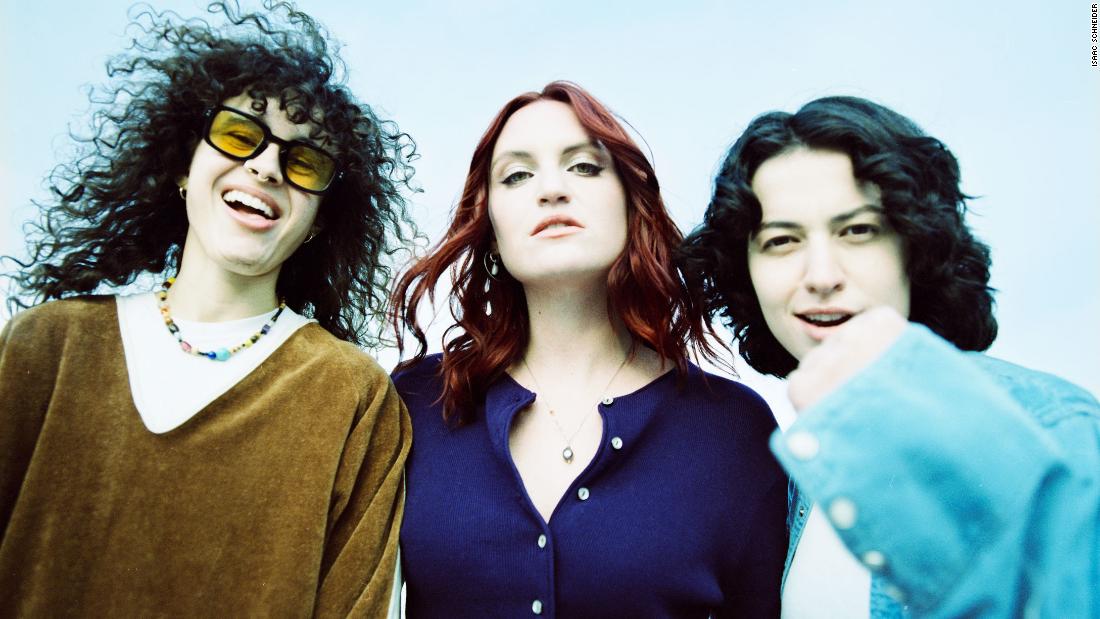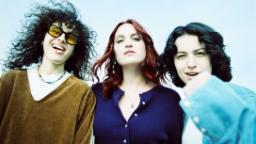

On a number of their songs, MUNA’s members — lead singer and songwriter Katie Gavin and guitarists Naomi McPherson and Josette Maskin — convert into text the sorts of notions and emotions that in bygone decades had to be subtext.
I recently spoke with MUNA. During our conversation, which has been lightly edited for length and clarity, we discussed the candor and vulnerability they inject into their work, the audience they have in mind when they create music, the value of recovering queer history and the refreshing way they portray the kind of love US society has long viewed as taboo.
Gavin: I’m not on the surface level of life. I don’t live there. It’s not where I’m most comfortable. I’m always a couple layers underneath.
I’m interested in using MUNA as a place to say things I may carry shame around. It’s easier to say certain things in songs. It’s always been that way for me. I’ve been a songwriter since I was a kid. To an extent, this is where I go to begin processing trauma. It’s unfortunately true that lots of queer people have some sort of experience with trauma. That’s just the complex PTSD of chronically feeling on the outside but not understanding why.
I think that we’re in a time where people are interested in not living on the surface level of life or society, because the surface is undeniably cracking. So, as a band, we want to talk about: What the hell are we doing here? What’s going on?
McPherson: With a banging beat underneath. (Laughs) That’s the banger part. It distracts. It’s a release built in.
McPherson: You just dropped two of my favorite authors’ names. We’ve had conversations before that had a similar ethos. Our work is for people who need it and get it. Often, those people are queer or are otherwise marginalized. Sometimes, the person who needs it might be a straight, 47-year-old dad who has a sensitive heart. But we’re committed to making music for people who need it and can use it, people who are queer like us, people who are marginalized. They’re our first priority. When other people like our music, that’s an additional nice thing.
Maskin: As kids, maybe we weren’t sure about who anything was for other than for ourselves. But our songs have always had the guiding principle of, “Someone (who has been through this particular experience) needs to hear this.” And it does happen to be people who are like us or have felt othered.
How do you see yourselves fitting into a lineage of queer musicians?
Gavin: Part of being queer is understanding that the archive is repeatedly being smashed and scattered into a million hiding places, so you have to retrieve a lot of it yourself. We all grew up engaging with different types of queer media, whether we knew it or not — I didn’t explicitly know that Tegan and Sara were gay, if you can believe it. I just loved them.
McPherson: Often, the magnitude of the cultural contributions by marginalized people isn’t appreciated or understood. I think that we’re only now getting to a point where there’s a sort of right-sized reception toward art made by marginalized people. But it’s always in the back of my mind that Tegan and Sara’s ’80s pop album pre-dates so much of the throwback ’80s pop that was made shortly afterward. Musicians will give them credit, but the general public probably doesn’t understand how influential that album was.
Queer visibility in the pop music world has ballooned in the past decade or so. But a song such as “Silk Chiffon,” about queer joy, still feels radical. Why do you think that is?
Maskin: Almost every lesbian movie seems to be a kind of lesbian period drama about unrequited love or someone dying. We reference “But I’m a Cheerleader” because it was one of the few queer movies during that time that depicted queer love in a light and lighthearted way, in a way we still find radical because it’s just not what we’re ever really told or what the media portray.
Gavin: With “Silk Chiffon,” people can meet that song on whatever level they want. It can just be a fun song. But if you want to go there with us, there’s a level of the song being a depiction of a different community — a community that’s outside society’s standards and that’s full of people who are just so happy to be there. I think that there’s something radical about saying, “I’m glad that I don’t fit in this world, because I actually don’t really believe in this world. I’m more interested in creating something else.”
